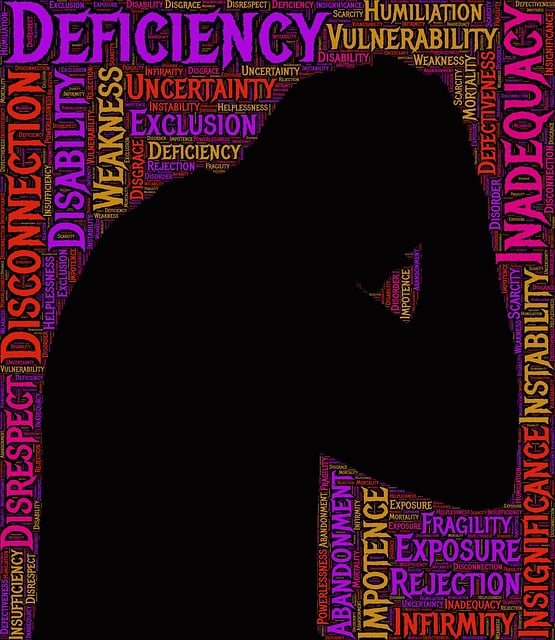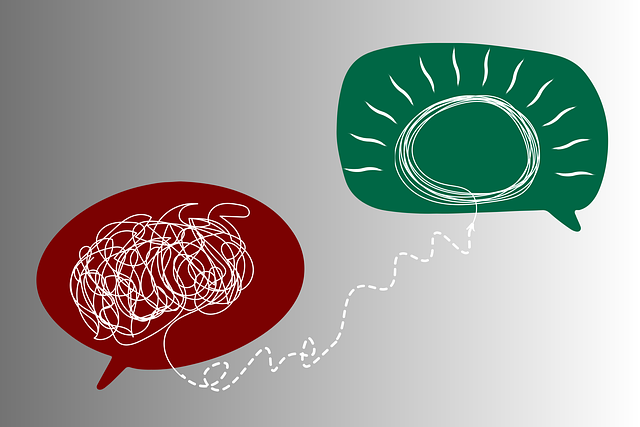Colorado Springs codependency therapy focuses on improving mental health through social skills training, addressing isolation caused by conditions like depression, anxiety, and codependency. By teaching conflict resolution, healthier communication, and recognizing unhealthy attachment styles, the program fosters assertiveness, self-care, and stronger communities. Integrating cultural sensitivity, cognitive-behavioral techniques, active listening, and role-playing exercises enhances interpersonal dynamics and risk management for both clients and professionals, promoting lasting mental wellness.
Social skills training is a powerful tool for individuals navigating mental health conditions, especially codependency. This article delves into the intricate relationship between social skills and mental well-being, highlighting how improving communication can enhance recovery. We explore specific challenges faced by those with codependency in social settings and unveil key components of effective training programs. Additionally, we offer strategies for therapists to integrate social skills training into Colorado Springs Codependency Therapy, fostering meaningful connections and supporting holistic healing.
- Understanding the Link Between Social Skills and Mental Health
- Identifying Challenges in Social Interactions for Individuals with Codependency
- Key Components of Effective Social Skills Training
- Strategies to Enhance Communication and Connection in Therapy
- Integrating Social Skills Training into Colorado Springs Codependency Therapy Programs
Understanding the Link Between Social Skills and Mental Health

In today’s world, where social interactions play a pivotal role in our mental well-being, understanding the intricate link between social skills and mental health is more crucial than ever. Many mental health conditions, such as depression, anxiety, and codependency, can significantly impact an individual’s ability to navigate and engage in social situations. The complex nature of these conditions often makes effective communication and relationship building challenging. For instance, individuals struggling with depression might withdraw from social activities, leading to a cycle of isolation that exacerbates their symptoms.
Colorado Springs codependency therapy offers valuable insights into addressing these issues. By focusing on enhancing social skills, therapists empower clients to improve their overall mental health. This involves teaching essential tools like conflict resolution techniques and fostering healthier communication patterns. Such interventions are vital for breaking negative cycles and promoting positive relationships. Additionally, risk assessment for mental health professionals is crucial in identifying potential triggers and implementing preventive measures, especially when dealing with at-risk individuals, thereby contributing to effective depression prevention strategies.
Identifying Challenges in Social Interactions for Individuals with Codependency

Individuals struggling with codependency often face unique challenges when it comes to social interactions due to their intense emotional reliance on others. This condition can lead to difficulties in forming and maintaining healthy relationships, as individuals may struggle with setting personal boundaries and prioritizing their own needs. In Colorado Springs Codependency Therapy, therapists focus on helping clients recognize these issues and develop strategies for more balanced interactions.
The process involves understanding the individual’s attachment styles and past experiences that might have contributed to codependent behaviors. Through mental health education programs designed to foster emotional well-being promotion techniques, clients learn to navigate social situations assertively, communicate their needs effectively, and cultivate meaningful connections without sacrificing their self-worth or independence. This approach also addresses the underlying mental health conditions that often coexist with codependency, such as anxiety or depression, through policy analysis and advocacy for better support systems within communities.
Key Components of Effective Social Skills Training

Social Skills Training for Mental Health Conditions in Colorado Springs Codependency Therapy plays a pivotal role in empowering individuals to navigate relationships and social environments with greater ease. Effective training programs typically incorporate several key components, ensuring a holistic approach to recovery. One of the cornerstones is Cultural Sensitivity in Mental Healthcare Practice, acknowledging that every individual brings their unique cultural background and experiences into therapy, which should be respected and integrated into treatment plans.
Additionally, fostering Inner Strength Development is vital. Training should equip clients with practical strategies to build resilience, enhance self-awareness, and improve communication skills, all of which contribute to preventing Burnout Prevention. Through role-playing exercises, group discussions, and cognitive-behavioral techniques, participants learn to express themselves assertively, manage conflicts constructively, and cultivate supportive connections, laying the groundwork for lasting improvements in their social interactions and overall mental well-being.
Strategies to Enhance Communication and Connection in Therapy

In Colorado Springs codependency therapy, enhancing communication and fostering connection are vital aspects of successful treatment. Therapists can employ a variety of strategies to create a safe, supportive environment that encourages open dialogue and genuine interaction. Active listening, for instance, allows professionals to gain deeper insights into clients’ thoughts and feelings, demonstrating empathy and understanding. This not only improves rapport but also facilitates more effective mood management, as clients feel heard and validated.
Additionally, role-playing exercises can help individuals practice new communication skills, particularly in managing difficult conversations or navigating social interactions. These simulations provide a safe space to experiment with assertive communication techniques, thereby enhancing their ability to express needs and set boundaries. In turn, this promotes healthier relationships and burnout prevention for both the clients and mental health professionals, who also benefit from enhanced risk management planning through improved interpersonal dynamics.
Integrating Social Skills Training into Colorado Springs Codependency Therapy Programs

In Colorado Springs Codependency Therapy programs, integrating Social Skills Training (SST) can significantly enhance client outcomes. SST focuses on teaching individuals effective communication and interpersonal strategies to navigate relationships, a crucial aspect often overlooked in traditional therapy models. By incorporating SST into Colorado Springs Codependency Therapy, mental health professionals can help clients build healthy boundaries, assert their needs, and improve emotional regulation, all vital components for long-term recovery and mental wellness.
This holistic approach not only supports individuals struggling with codependency but also benefits those seeking trauma support services. Mental wellness coaching programs development should emphasize SST to empower clients to manage challenging situations, reduce stress, and foster meaningful connections. A comprehensive risk assessment for mental health professionals is essential to ensure these programs are tailored to individual needs, promoting safe and supportive environments for healing and growth.
Social skills training is a powerful tool for individuals navigating mental health conditions, especially codependency. By addressing specific challenges in social interactions and incorporating evidence-based strategies, Colorado Springs codependency therapy programs can significantly enhance client outcomes. Integrating these training methods enables therapists to provide comprehensive care, fostering better communication, deeper connections, and ultimately, improved mental well-being. This tailored approach is key to helping folks overcome codependency and build a more fulfilling life.














